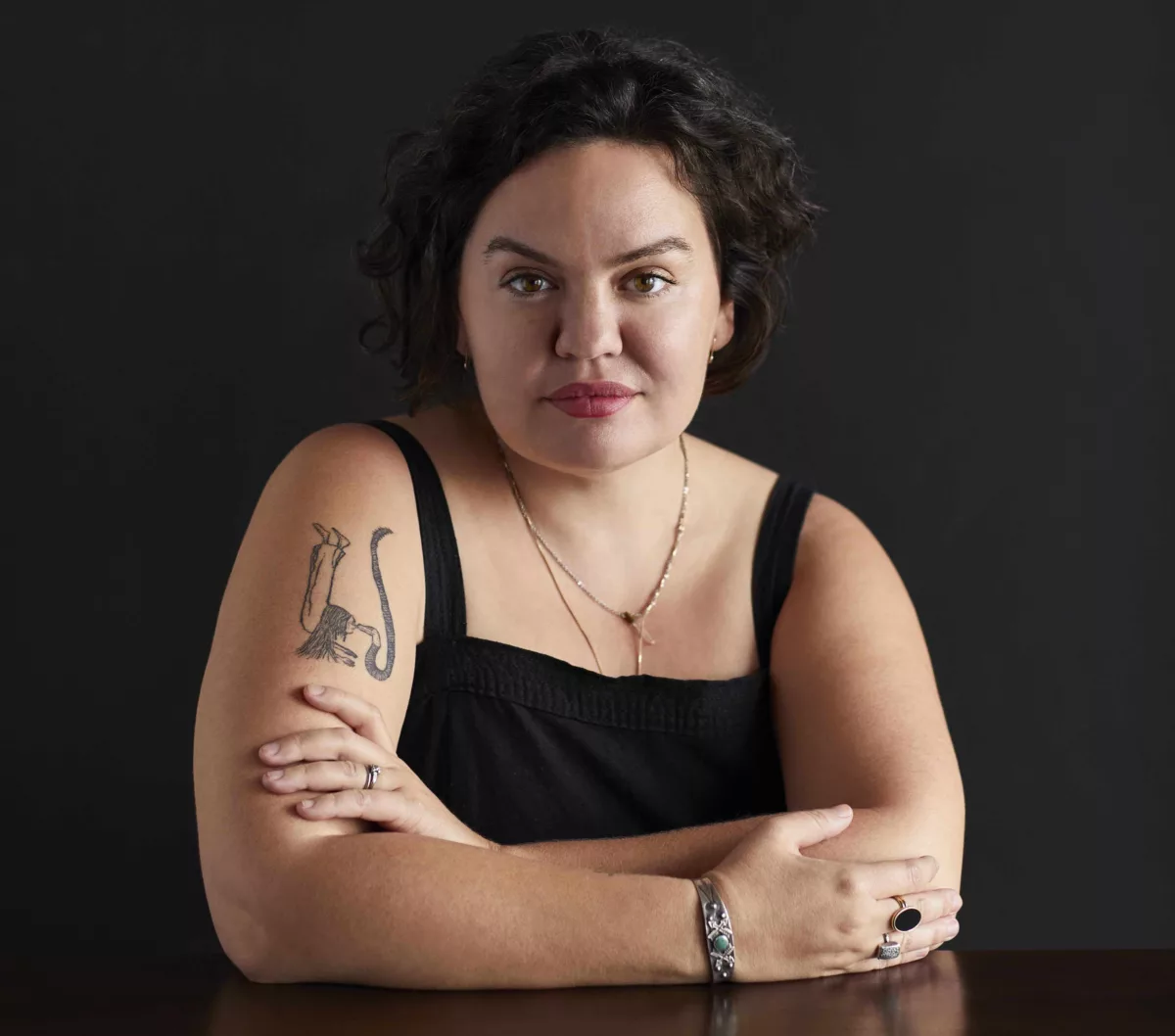Newsletter
Book Explores How Child Protective Services’ Failures Led to Murder-Suicide
Long before the murder-suicide, there had been numerous reports to CPS about suspected abuse in the Hart household.


Book Explores How Child Protective Services’ Failures Led to Murder-Suicide
by Elizabeth Weill-Greenberg
In July 2018, journalist Roxanna Asgarian chronicled the case of Jennifer and Sarah Hart, two white women who drove their car off a cliff along the Pacific Coast Highway in Northern California. The women killed themselves and their six adopted Black children—Markis, Hannah, Abigail, Devonte, Jeremiah, and Ciera. Asgarian’s investigation, which was published in The Appeal, revealed that the children had been ripped from their biological families and, once adopted by the Harts, neglected by child protective services agencies.
Now, Asgarian is delving deeper into the story in her new book, We Were Once A Family: A Story of Love, Death, and Child Removal in America. Long before the murder-suicide, there had been numerous reports to CPS about suspected abuse in the Hart household. Seven years before their deaths, Sarah had pleaded guilty to abusing then-six-year-old Abigail. Still, no one—neither CPS nor the police—rescued the children from the Hart home.
The reality of the children’s lives—beatings, starvation, terror—was in stark contrast to the public image Jennifer cultivated on social media. On Facebook, she bragged about their homeschooled, vegetarian, multicultural family that attended protests and music festivals. A photo of one of the children, Devonte, crying and hugging a police officer at a demonstration went viral. His body has never been found.
In the weeks after the crime, there was a frenzy of media coverage. There were interviews with the women’s friends and family members, and speculation about the Harts’ motivations. Some reporters suggested that the women had been overwhelmed. A police detective said he thought Sarah and Jennifer had “succumbed to a lot of pressure.”
“[Jennifer and Sarah] got the benefit of the doubt by every caseworker, but they also got the benefit of the doubt in death,” Asgarian recently told The Appeal.
Shortly after the murders, Asgarian started to look into how the children—two sets of siblings from Texas—ended up thousands of miles away from home with the Harts. On July 12, 2018, she published her investigation in The Appeal, Before Children’s Grisly Deaths, A Family Fought for Them And Lost. About a year later, she followed it up with another story, also published in The Appeal, A Mother Grapples with Adoption that Led to Their Deaths.
Asgarian discovered that the two birth families had not abandoned or abused the children. In fact, they were desperate to keep them, but CPS had put the children in foster care, and then placed them with the Harts for adoption, largely for issues related to their poverty.
One sibling, Dontay, was spared from the Harts’ home, but CPS plunged him into a different kind of hell. At 10 years old, the state sent him to a residential treatment unit akin to a jail. As an adult, he’s been in and out of prison, according to Asgarian.
Asgarian recently spoke with The Appeal about her new book. The interview has been edited for space and clarity.
The Appeal: As a journalist, what was the most difficult part of reporting the story?
Roxanna Asgarian: The hardest part was getting records because the child welfare system is so closed off. The reason I was able to do it was because of Dontay, the surviving older brother. When you go through the foster system, you have the right to request your own file.
There were a lot of redactions because he has a juvenile record and they redact that stuff, even though it’s for his personal use. Ostensibly, they’re protecting kids and their privacy, but, in the case of these Hart children, they were all dead. So their need for privacy didn’t exist anymore, and their need for accountability did exist. So you could see how this privacy model actually helped the system.
TA: The birth families were repeatedly punished for living in poverty—for not having proper housing, transportation, and childcare.
RA: It is often true that there are very concrete needs, and that is not the purview of CPS to provide those needed things. It really is a system that’s punitive.
TA: How did you see racism play a role in both the removal of the kids and how CPS and the police ignored the repeated reports of abuse in the Hart home?
RA: There’s a very clear throughline of racism throughout this story, and, of course, there’s a class piece to it too. Tammy is white. [Tammy Scheurich is the biological mother of three of the murdered children, Markis, Hannah, and Abigail.] Her experience with CPS was also really punitive and mean-spirited.
The Davis family, who are Black, are from an almost totally Black area in Houston. There were [family members] who wanted the Davis kids right there in Houston. The idea that they should be sent to a nearly all-white town, 1000 miles away in Minnesota, and they would be better off, in and of itself, is a racist assumption.
TA: Can CPS be reformed or does it need to be abolished?
RA: We have this refrain that they’re underfunded, they’re overburdened. We need more caseworkers.
Ultimately, none of that is the problem. The problem is a lot deeper than that. It’s about the way that the system is set up to punish families. I do think that we should abolish it.
When people hear that, they think that you just want to take it away and leave a hole where it was. That’s not at all what I think. I think that it’s a change in a mind frame, where we start to put money into supports that are outside the system for parents. We need to give parents money. The Child Tax Credit reduced abuse and neglect, it reduced poverty.
TA: You’ve corrected the historical record of what happened to these children and their birth families, but what people may not see is how this story was willfully not told before.
RA: This story was actually really hard to get out there. As a freelancer, I got a lot of no’s. That’s really important to note—that there was active resistance at big places that we’ve all heard of.
I had a New York Times editor tell me that everybody knows foster care is fucked up, and that we want to focus on how these women “broke bad.” They offered me two paragraphs, $150, and not even a guaranteed byline on a story that was about Jennifer and Sarah Hart. So I passed and I took it to The Appeal, where I was allowed to write the story that I wanted to write.
My goal [in writing this book] was to fix the narrative, to change the narrative, to make this more inclusive [of the families.] And my goal was to teach people about how fucked up the system actually is. But I also had a goal as a journalist, to be transparent about the process, including how hard it is. I felt [that I didn’t have] a roadmap about how to do this in an ethical way. I want that roadmap to exist for journalists coming up behind us.
It’s so isolating. I got to the point where I couldn’t even talk to my friends about it. It’s really heavy shit. I’m done with child welfare stuff for a while, I think. And it’s a time when a lot of people would like to see more of that from me, but I’ve given what I can give here, for now.
ICYMI — from The Appeal
New York Gov. Kathy Hochul is threatening to take her state back decades on pretrial justice and policing. Her push against bail reform has embraced racially charged fearmongering in an appeal to “mob justice,” write Victor Dempsey and MK Kaishian.
In the news
Melvin Quinney, 74, has been exonerated of indecency with a child. He was convicted in the early 1990s in the midst of the “Satanic Panic,” during which time parents and other caregivers were falsely accused of running satanic child abuse rings. [Paul Flahive / Texas Public Radio]
In March alone, at least 12 incarcerated people died in Alabama. [John H. Glenn / Alabama Political Reporter]
Half of the 1,700 people on a Nassau County Police Department list of suspected gang members have no criminal history. Some people were added to the list for attending a barbecue. [Charles Lane / Gothamist]
California counties are being sued for financially exploiting detained people through high-priced phone and commissary costs. [Keri Blakinger / The Los Angeles Times]
At the Dauphin County Prison, a man’s death was ruled natural, but documents detailing the time shortly before his death contradict each other. [Josh Vaughn / PennLive]
That’s all for this week. As always, feel free to leave us some feedback, and if you want to invest in the future of The Appeal, donate here.
